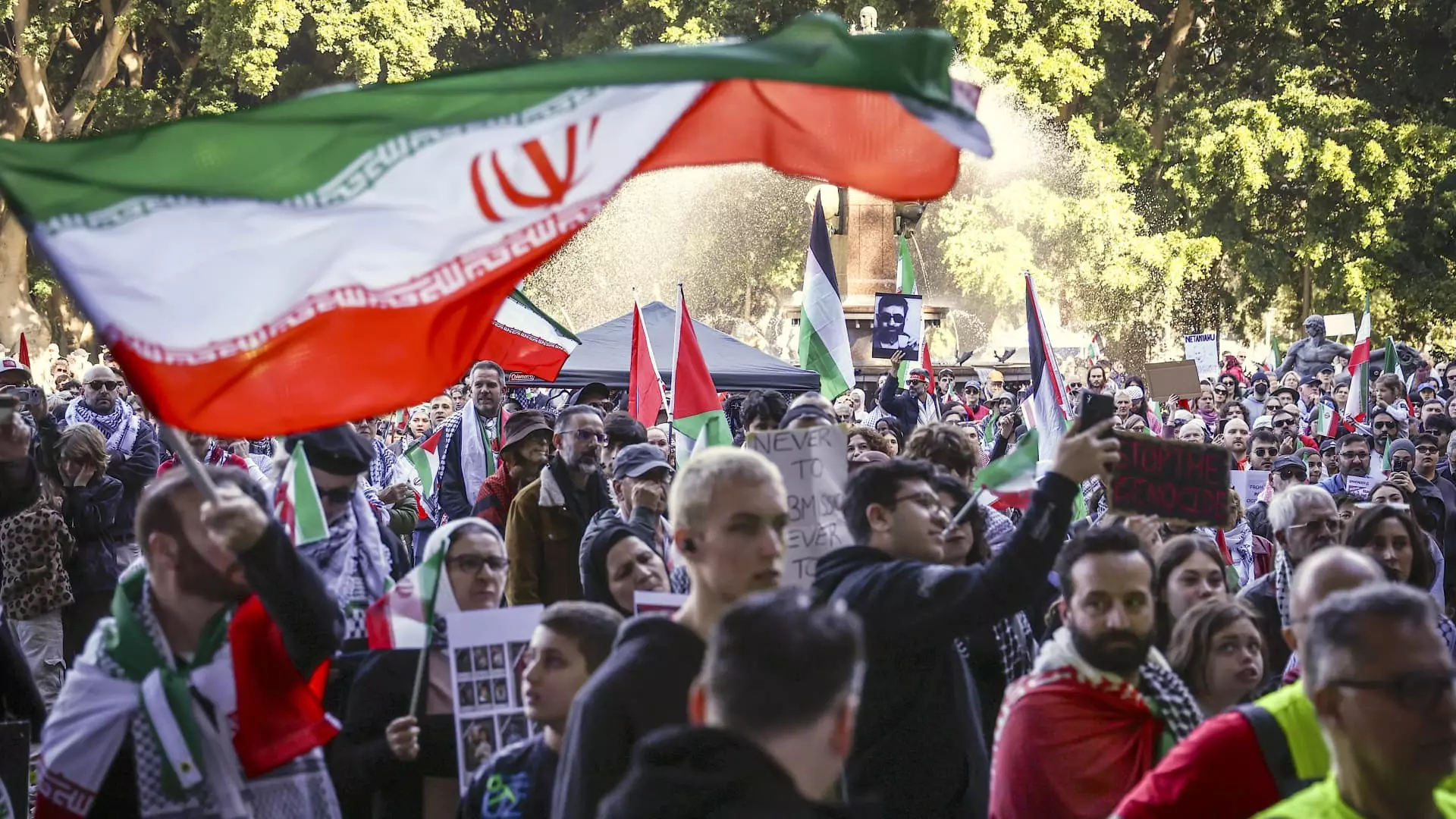The ongoing tensions in the Middle East are escalating sharply, a situation exacerbated by reckless military maneuvers from powerful nations that ought to know better. The recent military intervention by the United States in Iran has flipped the script on an already volatile situation, stirring up an unprecedented cycle of retaliation and further conflict. Iranian Foreign Minister Abbas Araghchi has made it abundantly clear that Iran intends to defend its sovereignty with full resolve—a sentiment echoed throughout the region, where fear and animosity prevail.
The political landscape has shifted dramatically since the United States launched attacks on three crucial Iranian nuclear enrichment facilities. This act, described by Araghchi as “outrageous,” has set off a cascade of violence that seems to prompt the question: what has the world come to when military strikes, rather than diplomacy, are considered the first line of defense? The feeling of helplessness is palpable, and it raises urgent ethical questions about the treatment of sovereign nations and the accountability of powerful states.
On the surface, these attacks may have been framed by U.S. President Donald Trump as a “spectacular military success,” yet the ramifications of such a narrative extend far beyond American borders. The assertion that Iran’s enrichment capabilities have been “completely obliterated” must be examined critically; one must wonder if those assessments are designed to bolster national pride while ignoring the human and geopolitical cost of such tactics. Like using a sledgehammer to crack a nut, this show of might may only serve to embolden extremist factions, further convoluting an already tangled web of alliances and resentments.
The Power Struggle Beyond Borders
In hindsight, one must question whether the military strikes truly honor the established protocols of international relations and sovereignty. The United Nations exists to mitigate such tensions, yet the cavalier attitude displayed by the U.S. raises a pressing concern: are the rules of engagement and respect for international law now merely decorative? Araghchi’s warning that the consequences of U.S. actions will be “everlasting” resonates, as it suggests that today’s hostilities may have repercussions that persist for generations.
While the strikes have been hailed by Israel as a pivotal moment, the broader implications suffer from a troubling lack of foresight. The jubilance surrounding Trump’s military interventions is short-sighted, given that many countries in the Middle East, including Saudi Arabia and Qatar, have voiced their deep apprehension. These nations are not merely witnesses; they are stakeholders in a regional ecosystem fraught with intricacies that demand careful navigation. The celebratory rhetoric surrounding the violence inadequately addresses these realities, potentially igniting further crises and retaliations.
Moreover, the ever-casual dismissal of civilian casualties is disturbing. According to Iranian state media, the recent military exchanges have resulted in the deaths of 430 individuals in Iran and 24 civilians in Israel—a grim tally that underscores the heartbreaking truth that lives hang in the balance while political leaders play a high-stakes game of chess. Is this the kind of “spectacular success” we wish to celebrate? The human cost should prompt serious reflection; the consequences extend to families, communities, and entire nations caught in the crossfire.
The Diplomatic Failure
In many ways, the failure to pursue diplomatic channels is one of the most glaring deficiencies in the U.S. approach. This line of attack has disrupted nascent discussions that might have ushered in a more peaceful resolution. Araghchi pointed to these interruptions, indicating that just as dialogues with the E3/EU were gaining momentum, a heavy-handed strike would derail them. It illustrates a broader issue: the reliance on force over collaboration creates a cycle of violence that undermines even the possibility of peaceful coexistence.
Herein lies the crux of the matter—a dialogue rich in solutions has been sacrificed for military posturing. The diplomatic arena must not only be welcomed; it must be prioritized if we have any hope of paving a path to long-term stability. While defense is necessary, relying solely on aggression will yield a golem of sectarian violence rather than a harmonious society. The real victory lies not in obliterating an enemy but in fostering understanding and cooperation among nations.
As the various parties continue to exchange fire and rhetoric, one thing is clear: the world cannot afford to turn a blind eye to these developments. Tensions are climbing, and unless a concerted effort is made to initiate meaningful dialogue, the reckless game being played may soon spiral far beyond anyone’s control.


Leave a Reply